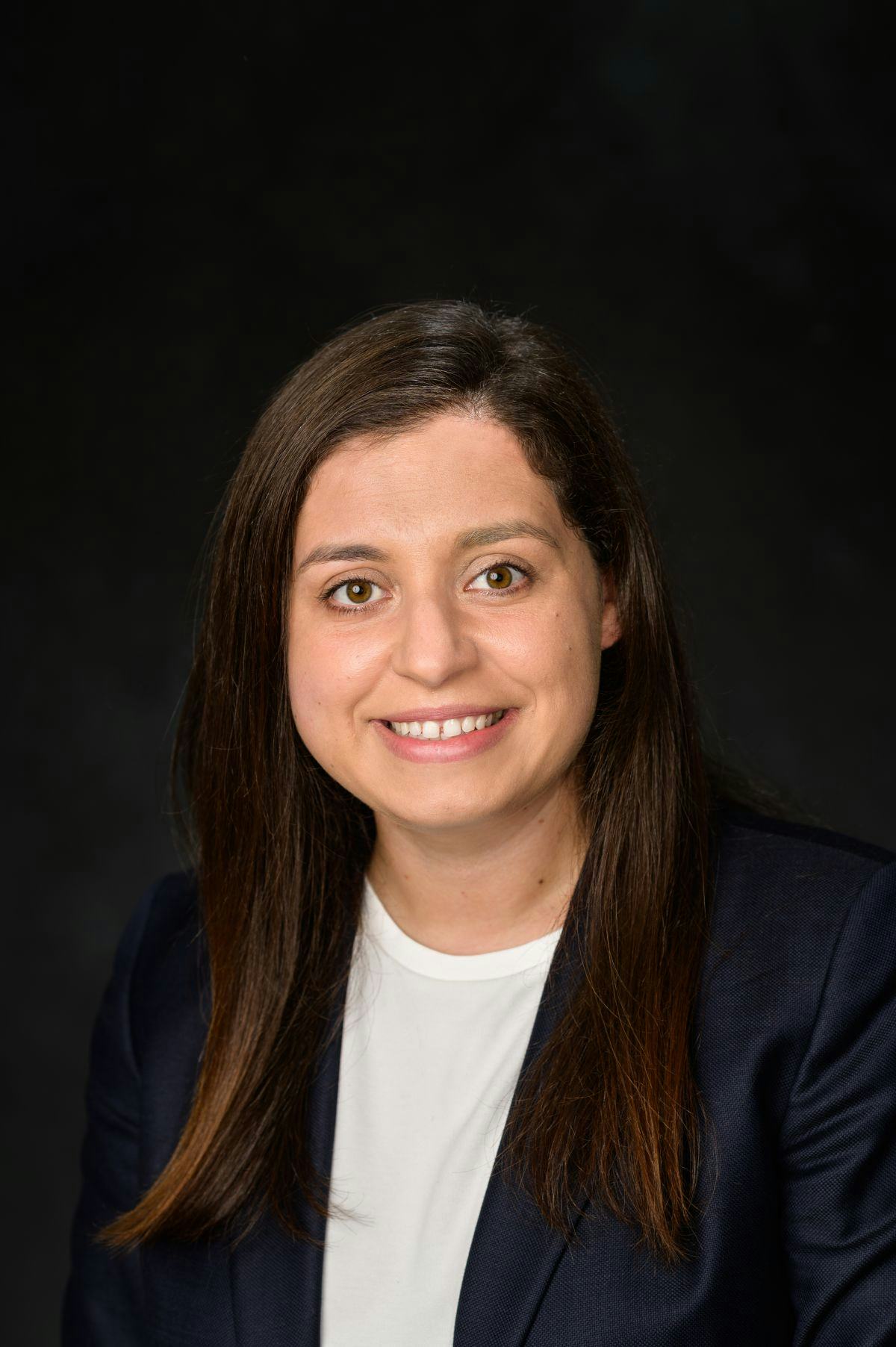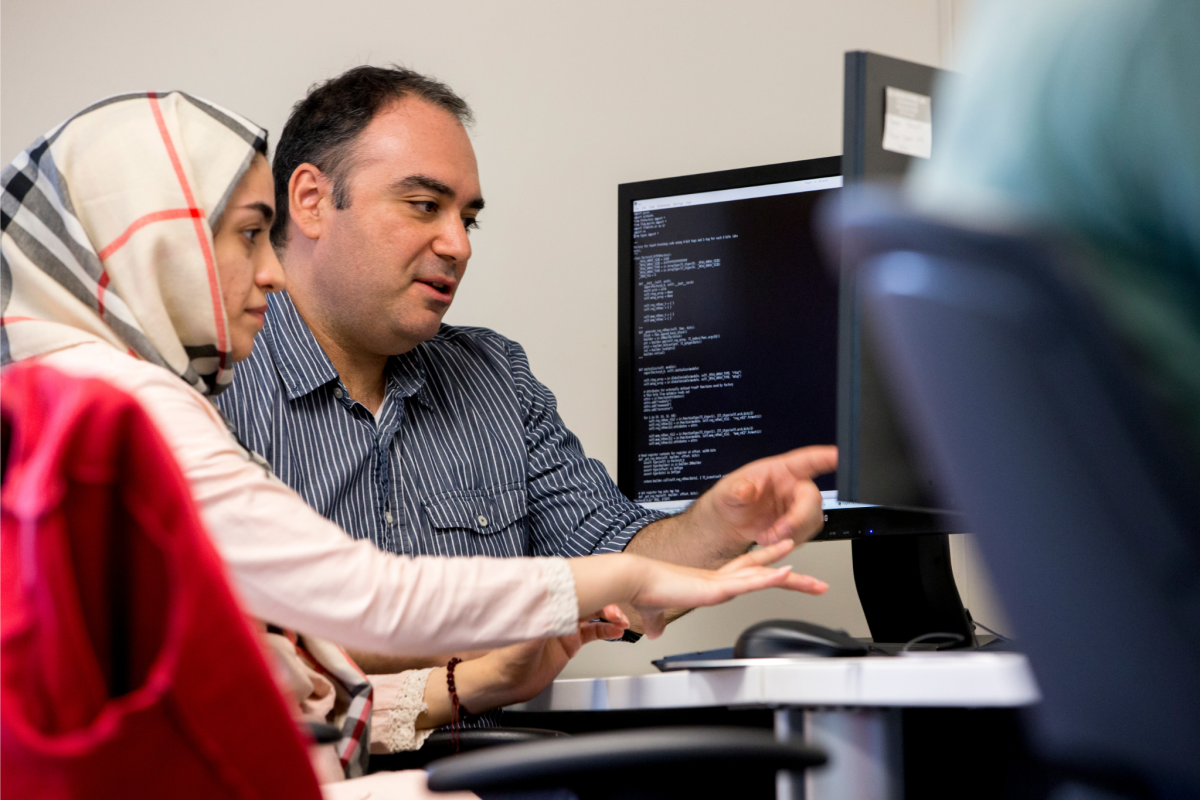Closing Gaps in Representation Among Historically Underrepresented Groups in Computer Science
Stevens computer science department’s “Broadening Participation in Computing Plan” receives verification from the National Science Foundation
Stevens Institute of Technology’s Department of Computer Science received verification from the National Science Foundation (NSF) for its Broadening Participation in Computing (BPC) plan. The NSF’s initiative aims to help close the disparities in representation among people from historically underrepresented groups (HUGs) in computer science academic programs.
For the computer science department, chaired by Stevens professor Dave Naumann, this achievement demonstrates its commitment to enhancing diversity within its community of faculty, staff and students, a core element of the university’s strategic plan, “Inspired by Humanity, Powered by Technology.” As part of Stevens’ diversity, equity and inclusion goals, individual departments are encouraged to develop programs that help close the gaps within its community.
“We aim to increase the portion of the student population who are women or members of historically underrepresented groups and to improve the support system for their academic and career success. We also aim to increase recruitment of women faculty and faculty from historically underrepresented groups,” he said.
Erisa Terolli, Stevens teaching assistant professor of computer science and chair of the department’s Diversity, Equity and Inclusion (DEI) committee, played a crucial role in shaping the plan.
“The plan was a collaborative effort involving all members of the DEI committee of the computer science department,” said Terolli, noting that the plan’s successful implementation can be attributed to committee members’ collective contributions and collaboration. Stevens computer science faculty involved in the effort include Eric Koskinen, Michael Greenberg, Zumrut Akcam Kibis and Susan Liu.
The NSF verification represents the meaningful actions the department will continue to take to help address the longstanding underrepresentation of women, Black and Hispanic students and faculty in computer science. This BPC plan represents an opportunity to make a significant impact in the Stevens community.
Underrepresented students bring valuable contributions to science
According to NSF data, science and engineering academic departments in the U.S. have yet to achieve full representation for historically marginalized groups, including women, Black and Hispanic students.
Nationally, women in computer sciences and engineering remain underrepresented, with only 26% and 24% among degree recipients, respectively. In 2020, the percentage of women receiving computer science degrees dropped to 21%, lower than the 1995 figure of 29%. Today, Hispanic or Latinx bachelor’s degree recipients in science and engineering stand at just 17%, while Black bachelor’s science and engineering degree recipients are only 9%.
“These statistics indicate a problem because there’s not enough diversity in these fields. If academic departments do not do something about these gaps, we could miss out on valuable contributions from underrepresented groups,” Terolli emphasized.
Within the Stevens community, despite approximately 20% of students pursuing degrees in the computer science department, only 21.2% are women, 2.4% are Black, and 11.5% are Hispanic/Latinx, according to data highlighted in the department’s BPC plan.
“We always knew there weren’t enough people from historically underrepresented groups in computer science and engineering. However, after a thorough data analysis last year, it became clear that not only do we lack fair representation, but students from these groups also face more challenges in graduating, staying in computer science, and finding internships and jobs,” noted Terolli.
Based on an analysis of the student body, the department decided to take action to encourage and support more women, Hispanic/Latino and Black individuals to pursue degrees and careers in science and engineering, according to Terolli.
“Having a diverse group of people in science and engineering brings different perspectives and ideas, making these fields stronger and more innovative,” said Terolli.
“Although we have not yet reached our diversity goals, we are actively implementing various initiatives to broaden our student body. These efforts include organizing an annual regional conference for women in tech, establishing mentorship programs for HUG students, and hosting a summer camp for high school students,” said Terolli.
Inclusion in faculty strengthens science, expands perspectives
According to data highlighted in the BPC plan, 33% of the department’s faculty are women, which is above the national average. The department's plan aligns with Stevens' rapid hiring expansion plan, which has significantly increased the number of female professors across the university, as well as Dean Jean Zu’s goal to raise the School of Engineering and Science’s female faculty representation to 30%.
The BPC plan aims to further increase the representation of women faculty, along with recruiting more Hispanic and Black individuals for faculty roles.
“The BPC plan focuses on activities by faculty in support of these and other goals, and it includes quantitative metrics to assess progress. This coordination includes planned activities by individual faculty in their proposals for research funding from NSF,” said Naumann.
Efforts will involve proactive recruitment and outreach and improving representation for women, Black and Hispanic faculty in line with regional demographics, improving equitable hiring practices within search committees and implementing processes to enhance transparency, promote equity and address bias.
“Participating in DEI initiatives has been a transformative journey for me. It has broadened my awareness of the challenges individuals from HUG communities encounter, prompting me to reflect on and formulate solutions to address these issues,” said Terolli, adding that helping drive these efforts has provided her with valuable experience in championing inclusivity and advocating for equity.


